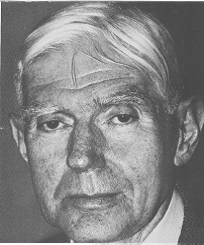The 39th Annual Karl F. Herzfeld Memorial Lecture
“Scaling down the laws of thermodynamics”
Christopher Jarzynski
Distinguished University Professor
University of Maryland, College Park
Department of Chemistry and Biochemistry,
the Institute for Physical Science and Technology,
and the Department of Physics.
Thursday, April 25, 2024 - 4:00 PM
Karl F. Herzfeld Auditorium of Hannan Hall - Rm 108
The study of thermodynamics originated in an engineering problem: how to build a better steam engine. From these beginnings the field has evolved into a remarkable conceptual framework and set of laws that govern the exchange of energy and matter.  Einstein called it “the only physical theory of universal content which I am convinced will never be overthrown”. Although the laws of thermodynamics were originally developed with macroscopic objects in mind, nanoscale systems also exhibit “thermodynamic-like” behavior. The biomolecular motors that exist in our cells convert chemical fuel into mechanical work, and single molecules exhibit hysteresis when manipulated using optical tweezers. To what extent can the laws of thermodynamics be scaled down to apply to individual microscopic systems, and what new features emerge at the nanoscale? I will describe some of the challenges and recent progress – both theoretical and experimental – associated with addressing these questions. Along the way, my talk will touch on apparent “violations” of the second law, the thermodynamic arrow of time, Maxwell’s demon, and quantum thermodynamics.
Einstein called it “the only physical theory of universal content which I am convinced will never be overthrown”. Although the laws of thermodynamics were originally developed with macroscopic objects in mind, nanoscale systems also exhibit “thermodynamic-like” behavior. The biomolecular motors that exist in our cells convert chemical fuel into mechanical work, and single molecules exhibit hysteresis when manipulated using optical tweezers. To what extent can the laws of thermodynamics be scaled down to apply to individual microscopic systems, and what new features emerge at the nanoscale? I will describe some of the challenges and recent progress – both theoretical and experimental – associated with addressing these questions. Along the way, my talk will touch on apparent “violations” of the second law, the thermodynamic arrow of time, Maxwell’s demon, and quantum thermodynamics.
Reception Immediately Follows the Lecture
If you have any questions about the Herzfeld Lecture or would like to make a donation to the Herzfeld Lecture Memorial Fund please contact the Department of Physics, CUA-Physics@cua.edu or (202) 319-5315.
-

Karl Herzfeld
The lecture series is named after Karl Herzfeld, former professor and chair of the Department of Physics.
Learn More
